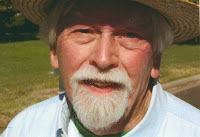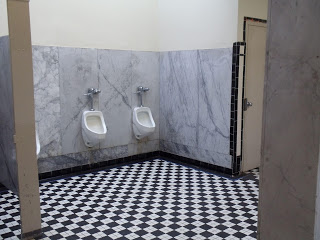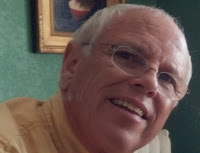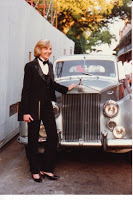“Cow-Town” generally has two definitions. The first, obvious one connotes a city or town that is noted for being involved in the cattle-trade. This is an old, traditional definition. The second meaning implies that a city or town, along with its inhabitants, is to some degree uninformed, uncultured, and unsophisticated. I remember while I was growing up in Ohio, Columbus was regarded as a “cow-town” for those reasons. I haven’t been back there for a generation, so probably it has changed some. I have heard that it has. For some time, Denver, too, was considered to be a “cow-town,” although it still is connected with the cattle trade and life-style.
While considering this topic “cow-town,” I began to ponder just how many cities, towns, and villages in the U.S. would fit that second definition. That reputation would have little or nothing to do with cows, nor the dazzle of modern infrastructure or sky-scrapers. It would have more to do with people, the inhabitants of those places.
I have been a long-term observer of human behavior, society, culture, and politics, particularly politics over the last thirty years and culminating with this Presidential election. I know that this conclusion may sound cynical, but I’m beginning to think that many municipalities might be considered to be “cow-towns,” regardless of size, based upon so many people being ill-informed, unsophisticated, uncultured, along with, too often, morally bankrupt.
For example, I’ve witnessed millions of Americans enthusiastically supporting politicians who spew fear, hate, anger, and who promote programs that are profoundly harmful, rather than beneficial. I have been forced to conclude that this reality of today defies all reason. I am unable to comprehend how so many Americans can be so delusional and apparently without moral-compass, failing to think and behave according to the “better angels of their natures.”
Whereas as the Democratic party, whatever its mistakes, weaknesses, or disliked candidates, does try to create policies and programs designed to improve society and the nation, the other does not. Increasingly over the last thirty years, it appears that those radicals who have taken over the Republican have focused only upon attempts to garner and to maintain power; and they have succeeded dramatically. Democrats have allowed themselves to be blind-sided and have been very slow in reacting. For example, Republican operatives cleverly figured out years ago that all they had to do was to grab power in state-houses, then gerrymander voting districts to disenfranchise Democratic voters. Records show that, in several states, Democrats have won discernible majorities of the votes; however, they have been given in those states only twenty-some percent of the seats in Congress. So much for democracy. The voting public was so unsophisticated that it allowed this to happen.
Today’s so-called “Republicans” appear to have to resort to stealing elections (sometimes with seriously felonious machinations, which I could go into detail covering the last sixty years), rather than presenting to the American public viable programs that could help the nation and its citizens. They seem to vote so consistently against good measures and, instead, vote for greedy, harmful ones. I’m not religious, but I wonder whether these nefarious power-brokers have consciously chosen to be in league with Beelzebub.
Why are so many Americans so unsophisticated that they allow themselves to be manipulated into feelings of fear, hate, anger, deep delusions, and to voting even against their own best interests and that of the nation? Could we consider ignorance and irrationality part of being unsophisticated? I certainly think so, regardless of how sophisticated some believe they are.
In addition to egocentric manipulators’ unbridled grab for power, there also is the sad emphasis upon greed. Why do a few feel entitled to billions of dollars while the majority of the population struggle? Where is the logic? Where is the empathy and care for others?
I suppose the word “culture” may be defined in two ways, also. One may use it in general terms to denote a wide spectrum of a nation’s society. It legitimately also may be used to connote the highest quality of humankind’s creative efforts in art, music, architecture, and societal interactions. In this nation, however, culture, in that second sense, no longer appears to be of any importance to the majority of the American population, especially in contrast to some other nations, where the people and their governments care for, and support, culture. During World War II, the British Chancellor of the Exchequer suggested to Prime Minister Winston Churchill that financial support should be cut off from all British cultural programs of art and music and, instead, be added to the war-effort. Churchill’s reply was, “No. Why else are we fighting?” Churchill obviously understood the importance of creating and maintaining a high level of culture in a civilized country.
In just the last eighteen years, the United States has lost 1,083 symphony orchestras, in addition to numerous opera companies, ballet companies, and school programs in art and music. Hours of operation for libraries and museums have been shortened. Apparently, most Americans just do not seem to care. They would much rather be entertained by far less sophisticated diversions. At the same time that America has been rapidly losing its culture, the American taxpayer has shelled out 5.4 billion dollars to build twenty-two new football stadiums just since 1997. Then there is pro-wrestling, cage-fighting, monster-truck contests, and rap. No, it is not “just a matter of taste,” as some claim. Medical/psychological research has documented that much of the nation’s population prefers humanly toxic exposures rather than beneficial, uplifting experiences. Of course, as today’s Republicans constantly remind us, “Science should not be believed, nor does it matter. Culture does not matter, either.”
And, this is where I get back to “cow-towns.” If “cow-towns” are made up of people who are ignorant, uncultured, and unsophisticated, then there must be many, many such places in America. My concerns bring to mind some thought-provoking words from one of the most brilliant authors of the 20-21st-century, David Cornwell (pen-name John le Carré), from his superlative book “Tinker, Tailor, Soldier, Spy.” I often quote these words. With one of the major characters, Carré had him speak feelings of dismay and sense of betrayal: “Do you know what is killing western democracy? Greed – – and constipation – – moral, political, aesthetic, – – – the economic repression of the masses, institutionalized.” Those words of condemnation were written forty-two years ago. Now look at us. Welcome to a nation of “cow-towns.”
© 20 July 2016
About the Author
I have had a life-long fascination with people and their life stories. I also realize that, although my own life has not brought me particular fame or fortune, I too have had some noteworthy experiences and, at times, unusual ones. Since I joined this Story Time group, I have derived pleasure and satisfaction participating in the group. I do put some thought and effort into my stories, and I hope that you find them interesting.









